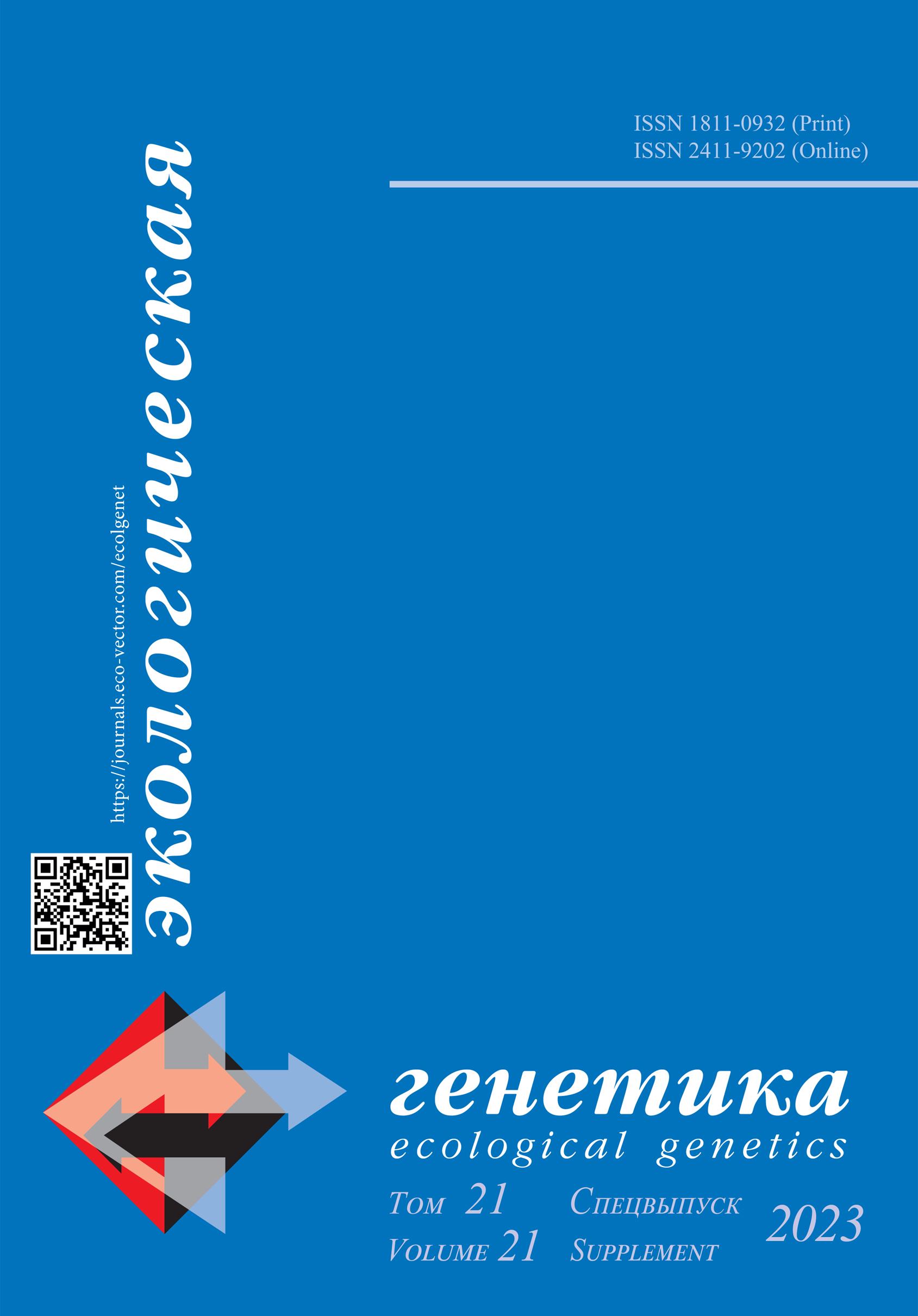Identification of genetically modified crops in Tajikistan
- Авторы: Barotov S.S.1, Nasyrova F.Y.1, Abdukholiqova F.A.1
-
Учреждения:
- Institute of Botany, Plant Physiology and Genetics of the National Academy of Sciences of Tajikistan
- Выпуск: Том 21 (2023): Спецвыпуск
- Страницы: 75-76
- Раздел: «ГМО: ИСТОРИЯ, ДОСТИЖЕНИЯ, СОЦИАЛЬНЫЕ И ЭКОЛОГИЧЕСКИЕ РИСКИ»
- Статья получена: 15.08.2023
- Статья одобрена: 09.09.2023
- Статья опубликована: 04.12.2023
- URL: https://journals.eco-vector.com/ecolgenet/article/view/568487
- DOI: https://doi.org/10.17816/ecogen568487
- ID: 568487
Цитировать
Полный текст
Аннотация
The technology of genetically modified crops (also called GM crops, GM products) allows, using genetic engineering methods, to select a specific genetic trait of one organism for inclusion in the genome of the original crop. This has made it possible to develop food crops with beneficial properties and eliminate undesirable properties in others. Despite the great agricultural benefits of transgenic crops, they have not gained acceptance in some countries: a) consumer suspicion due to allergic reactions observed to some transgenic products, b) lack of international regulations regarding these GM crops and c) negative environmental impacts Wednesday. Impacts resulting from mass production of transgenic crops, such as loss of genetic diversity, development of more adaptive weeds, migration of transgenic genes to their wild relatives, and less likely migration of transgenic genes to other unrelated organisms through horizontal transfer [1]. In addition, contamination of food products with transgenic residues has prompted various countries to restrict the import of food products made from transgenic plants or plants labeling products or ingredients as or derived from transgenic crops [2].
The aim of this study is to qualitatively evaluate various GM crops from the perspective of landrace conservation and sustainable development to achieve food security.
Six varieties of agricultural crops were selected as the object of study: 2 varieties of tomatoes imported from abroad (2022 harvest at the experimental site of the IBPPG TNAS), 1st grade potatoes from the Dushanbe market (produced in Pakistan), 2 varieties of local production. “Sharaf” corn and 1 variety of corn (made in China).
Isolation of genomic DNA was carried out according to the method: Easy Pure Food and Fodder Security Genomic DNA Kit (TransGen Biotech., China), or EasyPure Plant Genomic DNA Kit (TransGen Biotech., China). Identification was carried out using primers to the CaMV35S promoter.
The results of PCR identification of GMOs showed that the endogenous CaMV35S promoter was found in potatoes (produced in Pakistan) and corn (produced in China). This endogenous CaMV35S promoter was not detected in the local tomato and potato and maize landraces studied, indicating the absence of a GM source in these samples.
This is consistent with the data that the local varieties of the studied crops are traditional and do not contain GM sources.
Ключевые слова
Полный текст
The technology of genetically modified crops (also called GM crops, GM products) allows, using genetic engineering methods, to select a specific genetic trait of one organism for inclusion in the genome of the original crop. This has made it possible to develop food crops with beneficial properties and eliminate undesirable properties in others. Despite the great agricultural benefits of transgenic crops, they have not gained acceptance in some countries: a) consumer suspicion due to allergic reactions observed to some transgenic products, b) lack of international regulations regarding these GM crops and c) negative environmental impacts Wednesday. Impacts resulting from mass production of transgenic crops, such as loss of genetic diversity, development of more adaptive weeds, migration of transgenic genes to their wild relatives, and less likely migration of transgenic genes to other unrelated organisms through horizontal transfer [1]. In addition, contamination of food products with transgenic residues has prompted various countries to restrict the import of food products made from transgenic plants or plants labeling products or ingredients as or derived from transgenic crops [2].
The aim of this study is to qualitatively evaluate various GM crops from the perspective of landrace conservation and sustainable development to achieve food security.
Six varieties of agricultural crops were selected as the object of study: 2 varieties of tomatoes imported from abroad (2022 harvest at the experimental site of the IBPPG TNAS), 1st grade potatoes from the Dushanbe market (produced in Pakistan), 2 varieties of local production. “Sharaf” corn and 1 variety of corn (made in China).
Isolation of genomic DNA was carried out according to the method: Easy Pure Food and Fodder Security Genomic DNA Kit (TransGen Biotech., China), or EasyPure Plant Genomic DNA Kit (TransGen Biotech., China). Identification was carried out using primers to the CaMV35S promoter.
The results of PCR identification of GMOs showed that the endogenous CaMV35S promoter was found in potatoes (produced in Pakistan) and corn (produced in China). This endogenous CaMV35S promoter was not detected in the local tomato and potato and maize landraces studied, indicating the absence of a GM source in these samples.
This is consistent with the data that the local varieties of the studied crops are traditional and do not contain GM sources.
Об авторах
Samariddin Barotov
Institute of Botany, Plant Physiology and Genetics of the National Academy of Sciences of Tajikistan
Email: barotov.ikai@mail.ru
ORCID iD: 0000-0002-1357-4228
Researcher
Таджикистан, DushanbeFiruza Nasyrova
Institute of Botany, Plant Physiology and Genetics of the National Academy of Sciences of Tajikistan
Email: firuza_nasyrova@mail.ru
ORCID iD: 0000-0003-3870-1446
Dr. Sci., Professor
Таджикистан, DushanbeFarzona Abdukholiqova
Institute of Botany, Plant Physiology and Genetics of the National Academy of Sciences of Tajikistan
Автор, ответственный за переписку.
Email: farzona_1297@mail.ru
PhD student
Таджикистан, DushanbeСписок литературы
- Chávez-González ML, Flores-Gallegos C, García-Lazalde VM, et al. Transgenic Residues in Soybean-based Foods. In: Soybean — Molecular Aspects of Breeding. InTech. 2011. doi: 10.5772/15892
- Barotov SS, Saidmurodov ShD, Nurov DS, et al. Identifikatsiya GMO v produkakh pitaniya rastitel’nogo proiskhozhdeniya. Izvestiya Natsional’noi akademii nauk Tadzhikistana. Otdelenie biologicheskikh nauk. 2021;(2(213)):57–64. (In Russ.)
Дополнительные файлы










